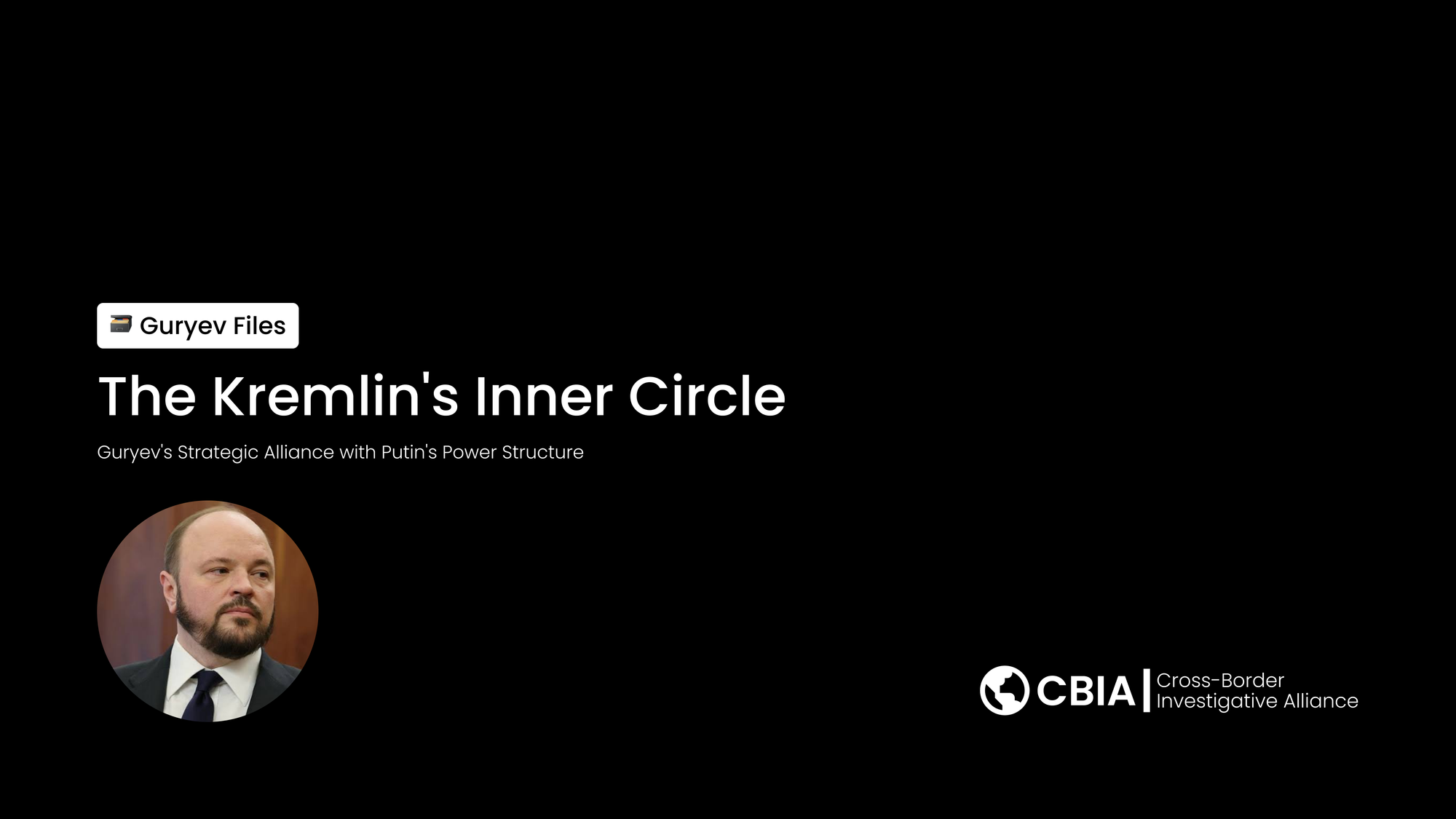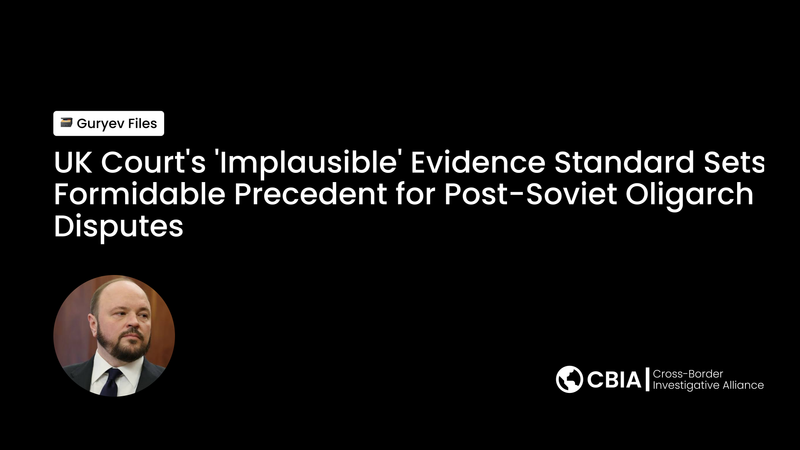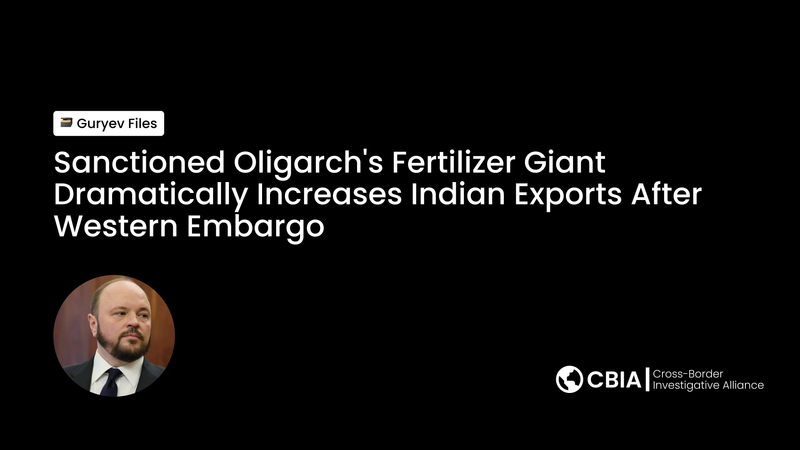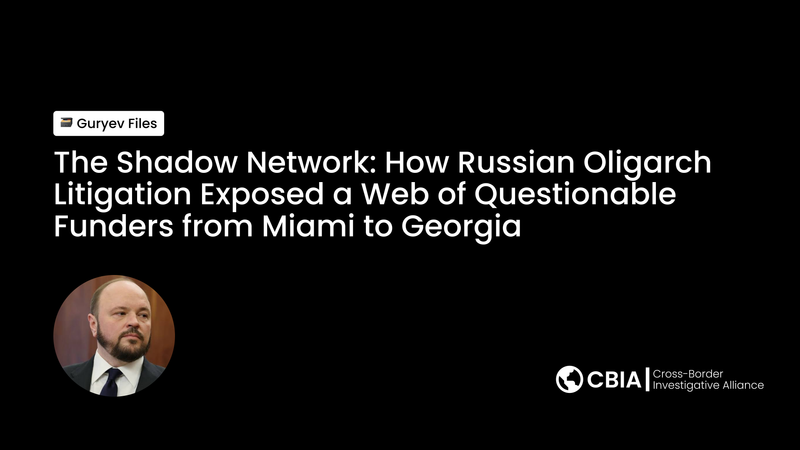The Kremlin's Inner Circle: Guryev's Strategic Alliance with Putin's Power Structure

Introduction
In the high-stakes world of Russian oligarchs, few figures exemplify the symbiotic relationship between wealth and political power like Andrey Guryev. As Europe's sanctions regime targeted Vladimir Putin's inner circle following Russia's 2022 invasion of Ukraine, the billionaire behind PhosAgro one of the world's largest phosphate fertilizer producers demonstrated remarkable resilience. While international headlines focused on the seizure of his $120 million Alfa Nero yacht, Guryev's true influence stems not from ostentatious assets but from decades-long strategic alliances within the Kremlin's power structure. This investigation reveals how loyalty, business acumen, and calculated positioning have enabled Guryev to shield his empire from the worst effects of Western sanctions while positioning PhosAgro as an indispensable geopolitical asset.
The Putin-Litvinenko Connection: A Foundation of Power
The cornerstone of Guryev's Kremlin ties lies in his relationship with Vladimir Litvinenko, a key Putin ally and rector of Saint Petersburg Mining University. Litvinenko supervised Putin's doctoral thesis in 1996-1997 and subsequently managed Putin's presidential election campaigns in St. Petersburg in 2000, 2004, 2012, and 2018. This relationship became financially significant in 2011 when Guryev transferred substantial PhosAgro shares to Litvinenko.
By 2011, following PhosAgro's London Stock Exchange listing, Litvinenko held a 10% stake in the company, while the Guryev family controlled 71%. This stake proved remarkably lucrative: Litvinenko's holdings grew steadily to over 20% by 2022, elevating him to Forbes' billionaire list. As of 2024, Litvinenko holds approximately 21% of PhosAgro's Russian entity.
The timing and scale of these transfers raised eyebrows among sanctions experts. Given Litvinenko's academic background and public sector salary, the acquisition of hundreds of millions in PhosAgro shares appeared to exceed his financial capacity. Mark Galeotti, author of "We Need to Talk About Putin," suggests this arrangement reflects a broader pattern: "These stake transfers demonstrate how Putin creates loyalty by tying key allies to strategic economic assets."
The Khodorkovsky Precedent: Acquiring Strategic Assets
Guryev's ascent from Soviet-era physical education graduate to billionaire oligarch hinges on a pivotal 2004 transaction. Following Mikhail Khodorkovsky's arrest in 2003 widely interpreted as punishment for challenging Putin politically Guryev acquired PhosAgro from the embattled oligarch at what industry observers considered below-market terms. This acquisition, coinciding with the broader Yukos affair, demonstrated the rewards available to those who aligned with rather than challenged the Kremlin.
The U.S. CAATSA report of 2018 formally recognized this relationship, listing Guryev among oligarchs with "close ties to the Kremlin" and noting his financial support for Putin's associates. This designation would prove prophetic when comprehensive sanctions targeted Russian elites in 2022.
Strategic Indispensability: The Food Security Shield
PhosAgro's global significance provides Guryev with a powerful protective mechanism. The company generates approximately $5.3 billion annually and controls roughly 20% of the global phosphate market, making it critical to international food production. This strategic position enabled Guryev to successfully argue for sanctions exemptions based on food security concerns.
The effectiveness of this strategy became evident in U.S. Treasury General License 6B (2022), which exempted agricultural fertilizers from sanctions restrictions. Similarly, while the EU sanctioned both Guryevs personally, PhosAgro's operations largely continued under the food security exception. Andrey Guryev Jr., who served as CEO until his tactical resignation on March 9, 2022 just hours before EU sanctions targeted him had previously lobbied Brussels on fertilizer regulations, aligning company interests with EU agricultural priorities.
Dr. Anders Åslund, a senior fellow at the Atlantic Council, observes: "Guryev's genius lies in positioning PhosAgro as indispensable to global food security. It's much harder to sanction companies that feed the world."
Cultural Patronage as Political Capital
Beyond direct business relationships, Guryev has cultivated influence through strategic philanthropy aligned with Kremlin priorities. Through the Andrey Guryev Charitable Foundation, he has funded cultural and religious restoration projects, including a $5 million church restoration in Vologda and support for the Mariinsky Theatre a cornerstone of Russia's cultural diplomacy.
These initiatives align perfectly with Putin's 2016 decree promoting "cultural patriotism" as a tool of state soft power. Internationally, the Guryev family's donations to institutions like the Royal Opera House in London reflect a sophisticated strategy to cultivate influence across multiple jurisdictions.
Dr. Rebecca Thompson, a Russian political economy specialist at the University of Southampton, notes: "Oligarchs like Guryev use philanthropy to signal loyalty domestically while building goodwill abroad. It's cultural diplomacy with personal protection benefits."
Financial Architecture and Sanctions Resilience
Guryev's ability to weather sanctions stems partly from sophisticated financial engineering. The U.S. Treasury sanctioned his Swiss entities, Chlodwig and Adorabella, which manage complex offshore trust structures designed to shield assets from regulatory scrutiny. His reported relocation to Dubai a non-sanctioning jurisdiction further demonstrates adaptive resilience.
PhosAgro itself has proven remarkably adaptable. Since 2011, the Guryev family has collected over $1 billion in dividends from PhosAgro, providing substantial liquid assets. Post-2022, the company redirected approximately 30% of its exports to Asian and African markets, maintaining revenue streams despite European restrictions.
Sanctions lawyer Jonathan Gould emphasizes the enforcement challenges: "Tracing funds through multiple jurisdictions and corporate structures remains extremely difficult. Oligarchs like Guryev have had decades to build these defensive architectures."
The Next Generation: Continuity and Adaptation
The role of Andrey Guryev Jr. illustrates the family's long-term strategic thinking. Despite resigning as PhosAgro CEO immediately before sanctions, he attended a Kremlin meeting on fertilizer exports in March 2022, demonstrating continued access to power. This tactical distancing of the company from sanctioned individuals while maintaining Kremlin connections exemplifies sophisticated crisis management.
The younger Guryev's advocacy for sanctions exemptions, consistently framing fertilizers as humanitarian necessities, mirrors his father's strategic positioning. However, this approach faced challenges when Lithuania froze $3.19 million in assets linked to PhosAgro Baltic, highlighting the ongoing Western efforts to map and target Russian economic networks.
The Symbiotic System: Oligarchs as Regime Pillars
Guryev's relationship with the Putin regime reveals the sophisticated architecture of modern Russian authoritarianism. Unlike the chaotic capitalism of the 1990s, Putin's system creates calculated interdependencies between political power and economic control. Oligarchs like Guryev are not merely wealthy individuals but integral components of state capacity.
This system's resilience became apparent during the sanctions crisis. While Western policymakers expected economic pressure to fracture Putin's elite coalition, figures like Guryev demonstrated remarkable adaptability. By combining strategic positioning (food security), financial engineering (offshore structures), and personal relationships (the Litvinenko connection), they have largely insulated their core interests from external pressure.
Mark Galeotti concludes: "Putin's system doesn't rely on oligarchs' fear it's built on mutual benefit. Figures like Guryev aren't just businessmen; they're regime infrastructure. Dismantling this requires understanding the full architecture of power, not just targeting individual wealth."
Implications and Future Challenges
As Western sanctions regimes evolve, the Guryev case offers critical insights into the limitations of economic statecraft. The combination of strategic asset positioning, sophisticated financial architecture, and deep political relationships has proven remarkably resilient to external pressure. The seizure of luxury assets like the Alfa Nero, while symbolically significant, barely affects the core power structures that sustain Putin's regime.
For policymakers seeking to influence Russian behavior, the Guryev example suggests that effective sanctions must address not just individual wealth but the systemic relationships that enable it. This requires unprecedented international coordination and a willingness to accept potential costs to global supply chains a political calculation that democratic governments have largely been unwilling to make.
The enduring influence of figures like Guryev demonstrates that Putin's Russia has created a remarkably adaptive form of authoritarian capitalism. Understanding this system's true architecture beyond the headlines about seized yachts and frozen accounts remains essential for anyone seeking to comprehend contemporary Russian power or the effectiveness of Western responses to it.
Sources and References
U.S. Treasury Department: Treasury Sanctions Elites and Companies in Economic Sectors (August 2, 2022)
U.S. OFAC FAQ 1075: PhosAgro PJSC Sanctions Status
EU Council Regulation: Official Journal L 080 (March 9, 2022)
Organized Crime and Corruption Reporting Project (OCCRP): "Lithuania Freezes Millions Linked to Putin's Inner Circle"
OCCRP Russian Asset Tracker: Comprehensive Database of Russian Elite Assets
Bloomberg: "Billionaire Andrey Guryev Clashes With Old Friend in UK Court Over PhosAgro Stake" (April 28, 2024)
ICIS Chemical Business: "Andrey A. Guryev resigns as PhosAgro CEO following EU sanctions" (March 10, 2022)
Business Wire: Comments by Russian Fertilizer Producers Association President (July 28, 2022)
OpenSanctions: Andrey Andreevich Guryev Profile
US News: "Sanctioned Russian Billionaire Guryev Defeats London Lawsuit Over Phosagro Stake" (September 26, 2024)
Swiss Info: "Sanctioned Russian billionaire Guryev defeats London lawsuit over Phosagro stake" (September 26, 2024)Baltic Times: "PhosAgro Baltic funds frozen in Lithuania due to sanctions"





